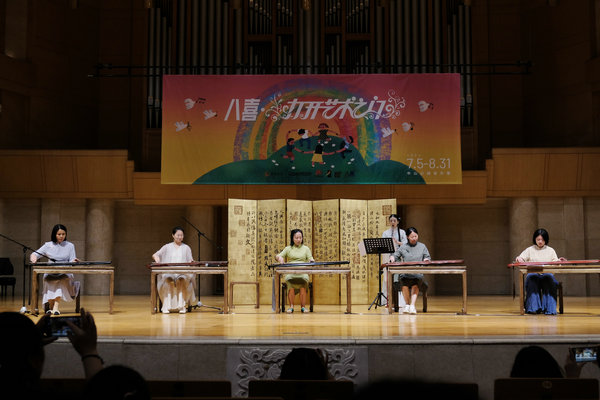a Chinese ensemble performed the “Nepal‑Dolmaling Guqin Concert” at the Dolmaling Hotel in Bouddha. The event featured six master musicians—Zhou Tongsheng, Chao Lifeng, Deng Lizhu, Ma Yexin, Zhao Yanchun, and Peng Jie—who brought the ancient art of Guqin to Nepali audiences.
The concert, organized in collaboration with the Nepal Guowang International Travel Agency, showcased traditional Chinese culture through the serene and reflective tones of the Guqin. The performance aimed to deepen people‑to‑people ties and highlight cultural unity between the two nations.
Guqin expert Zhou Tongsheng, who led the ensemble, spoke to the audience about the instrument’s rich heritage. He explained that the Guqin, a seven‑stringed zither, has been played for over 3,000 years. “Its calm, melodious tone makes it a bridge between hearts and cultures,” Zhou said.
Performers demonstrated several traditional compositions, blending solo melodies with group harmonies. The tranquil sound of the Guqin created an intimate atmosphere that resonated with the listeners. Guests praised the soothing performance and the emotional depth it conveyed.
The Guqin itself is deeply symbolic in Chinese culture. Historically, it was an instrument favored by scholars and poets. Its name literally means “seven strings,” and its music is known for its refined and meditative qualities As a recognized symbol of Chinese intangible cultural heritage, the Guqin represents a timeless link to ancient traditions.
Drawing both musicians and diplomats, the occasion highlighted how traditional arts foster mutual understanding. The audience included cultural enthusiasts and students who appreciated the ensemble’s dedication to authenticity and cultural exchange.
The cultural exchange continues. The Chinese team remains confident that their performance will foster stronger bonds and inspire future cooperation in arts and education.


